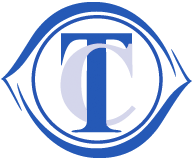As far as first impressions go, Niroshan Silva effortlessly captivated us as we sat down with him for our interview. The Founder and CEO of the Training Consortium, Niroshan is a walking masterclass on self-discovery and continuous learning, and is Sri Lanka’s most sought after ‘Growth Expert’ with a fascinating, and highly demanded approach to coaching and mentoring. It’s clear he takes great pride in his art, and more so in the success of his clients.
With a career spanning over 25 years, Niroshan is the only Sri Lankan certified by the International Coaching Federation (ICF) as a Master Certified Coach (MCC), counting over 12,000 hours of coaching. He is also the only Asian to receive the esteemed Fellow Coach accreditation from the International Authority for Professional Coaching (IAPC&M) – Coaching (AFC) & Mentoring (AFM). A qualified NLP Master Practitioner (UK), certified MBTI® type 2 Practitioner, and certified DISC® Practitioner, Niroshan has impacted the lives of over 500,000 individuals in Sri Lanka and around the world.
We were thrilled to feature Niroshan in this month’s edition of CEO Magazine, and delve deeper into his journey, his insights, and his certified practice in human behavioral patterns, which have enabled him to garner the trust of iconic corporate leaders, entrepreneurs, and professionals in Sri Lanka and beyond.
Q: Tell us a little bit about yourself regarding your education and your career path that has led you to this point in time.
A: I was an imaginative, enthusiastic, and very expressive child. Being highly opinionated gave context to starting great conversations with teachers and fellow students at my alma mater St. Thomas’ College, and eventually with people from all walks of life and schools of thought at Charles Sturt University, Australia & University of Lincoln UK.
During my time at College and University, I gravitated towards opposing ends of any spectrum, from boxing on one end to scouting on the other at college, to a Bachelors in Management and a Bachelors in Human Resources at University, to meditating in a jungle one day and performing at a jazz music gig the next. Juxtaposition fascinated me, and I looked for it in other people, observing the nuances of their personalities.
I was curious about the clockwork of life and what made people tick. This made me an instinctively active participant in student activism initiatives, becoming the only non-Australian at the time to receive the University Principal’s Leadership Award for my demonstrated commitment towards driving change. It was a sign of what was to come.
Leadership came naturally to me. I was elected the District President of Leo Club, the National President of the Junior Chamber International, and served as the President of the HR Association of Sri Lanka. Every accolade I have earned, from being the first ICF Master Coach to earning five distinctive Fellow titles, has been a result of the unique approach I have towards everything in life, which often makes me a trailblazer in my peer group to achieve unprecedented milestones.
During my early professional career, I took on the family business, but soon moved on to Human Resources, an evolving industry on its own that gave me the opportunity to apply my learnings and practices. However, I reached a particular juncture in my life where it was not about doing the same things better, but about finding something better to do.
Amidst this cornucopia of experiences, teaching was a constant and purposeful aspect of my life. I conducted professional lectures at local universities while my more informal lectures were held at office cafeterias and car parks. The sessions became more advisory as individuals approached me with their workplace challenges and obstacles. These relationships encouraged me to take the leap and establish my own company, and became the foundation of my coaching and mentoring practice for years to come.
Can you enlighten us on the philosophy of your organization? How does this philosophy correlate to your characteristics as a leader?
A: In ‘The Art of War’, Sun Tzu states that if you know yourself, you would win all your battles. My greatest joy – and the founding philosophy of my organization – is to enable, equip and encourage people to understand themselves, embrace change, grow in life, and reach their full potential. One of the key values that I integrate into my teaching is the elemental need for humans to become the best version of themselves. Our progress must be at our own tempo, to our own unique beat.
A coach is someone who possesses a strong coaching presence, listens without judgement, and asks insightful, thought-provoking questions that help clients achieve self-realization and direction without causing resentment, either towards themselves or others. The fundamental requirement in my profession too, is to understand why people function the way they do.
So while coaching a steadily growing portfolio of some of the largest corporations in Sri Lanka, I also chose engagements that would evolve my adaptability and assimilation to people and cultures that were both professionally and personally rewarding.
While my home base of Sri Lanka introduced me to multi-ethnic clients, I explored diversity on a much broader scale by completing months-long executive coaching engagements in many countries including South Africa, Dubai, Vietnam, Kenya, India, and Australia. These international assignments helped me gain a more intimate understanding of how history, culture, tradition, religion, and geography can influence a person’s thinking, aspirations, profession, as well as social attitudes and constructs. Applying this experience across multiple client demographics proved to be highly beneficial. Not only was I able to positively impact clients from different backgrounds, but I was also able to influence their thinking and understanding of diversity and inclusion within their own multinational corporations. This was the birth of our new venture Training Consortium Global Singapore in 2022.
My extended periods of engagement with clients evolved into one-on-one mentorships, a partnership of self-discovery where I heavily focus on passing on my knowledge, skill sets, and worldly wisdom to future leaders. To ensure that my approach is holistic, credible, and multifaceted, I obtained the necessary qualifications from many schools of thought. Today, as I reflect on my 25-year journey in coaching and people management, I am eager to see other individuals continuously improve and do better in their lives, regardless of their professional and social position.
I strongly believe that mental conditioning and moral conditioning precede physical conditioning when it comes to reaching one’s peak professional self. Education alone does not make individuals wiser. Exemplary self-discipline is a prerequisite for success, and balance and moderation are crucial to avoiding emotional peaks. This approach is highly beneficial in coaching engagements across corporations and businesses, where employees with the right moral foundation can better align with company values and accept them as organic extensions of their own beliefs.
How has your journey been so far? How receptive has the market been?
A: Incredible. Over the past 25 years, I have had the pleasure of influencing over 500,000 individuals around the world; half a million individuals working differently, prioritizing differently, living differently, because I have had the opportunity to introduce them to a different way of thinking, impacting their lives and those around them for the better.
The market and corporates have been highly receptive due to the effective and almost immediate results evidenced by the success rates of our sessions. I have had the honor of partnering with and working for some of the biggest companies in the world that I have learnt from them as much as I have supported them in their journey . These achievements have enabled us to implement a forward-looking expansion strategy for our business for 2025, with the establishment of our Singapore office among many other initiatives as part of the plan.
What are the latest trends and innovations in the industry that are used by your organization that you would like to highlight, and what is being done in terms of expansion of the brand?
A: In the wake of the pandemic, the world has seen a drastic shift towards digitalization across all aspects of our lives and businesses, and our organization is no exception. We adapted fast to the new normal by offering online coaching sessions, making it easier for us to reach and engage with our clients, a necessary and timely solution that has served the Company even beyond the lifting of mobility restrictions.
We invested in physical infrastructure to support these sessions, designing our own state-of-the-art studio with ultra-modern audio-visual software and special ambient lighting to create high quality, clear, and engaging sessions.
However, the biggest game changer is the integration of Artificial Intelligence (AI) in our training modules. Our new AI-based coaching offering raises the benchmark of online coaching and mentoring standards in Sri Lanka to be on par with international levels. Unlike the average cookie-cutter programs that are readily available, the Training Consortium personalizes coaching sessions with AI, to analyze and provide feedback tailored specifically to an individual’s skills, experiences, and goals. Such value-adding features enable our clients to identify their strengths and weaknesses, and develop action plans and strategies accordingly. They can also change their inputs based on real-time changes in operating environments, so that they are ensured continuous support as they grow and evolve in their careers.
Despite these exciting developments, the industry is not without its challenges. One pressing issue is the lack of regulation, which means that anyone with a gift for gab can claim to be a coach or mentor. This can lead to a number of challenges including ineffective coaching sessions and inaccurate applications with unfavorable outcomes, and unsatisfied clients. This also leads to the preference for internationally reputed training organizations over local talent, even when the work is locally relevant in nature. This bias also stems from the prestige Sri Lankans associate with global organizations, a perception that the Training Consortium is committed to change through our work.
Additionally, global-scale events such as the pandemic followed by the local economic crisis has greatly impacted how companies as well as individuals plan their budgets. Many are hesitant to invest in coaching and training, leaving trainers and coaches who failed to adapt fast to the new normal with less engagements, and in some cases, unemployed.
Finally, there is a growing concern about the difference between a qualification and education in the new generation of coaching professionals. While many coaches are qualified on paper, some lack the necessary skills and attributes that coaches are expected to possess. This battle of wisdom vs. memorization highlights the need for a more robust and comprehensive education system for coaches.
Needless to say, the coaching industry has undergone a significant transformation during the past few years, and what clients are looking for from their coaches have shifted drastically. With every challenge comes an opportunity, and I believe the Training Consortium has made the right investments and right choices that have enabled us to stay atop new, exciting industry developments.
How does coaching differ when working with leaders at the C-Suite, MD or Board level?
A: While the technical and ideological aspects of coaching remain the same regardless of the level of the individual client, there are certain nuances that come into play when working with senior leaders. Executive coaching for CEOs and other C-suite members often focuses on strategy, vision, change management, and other top-level initiatives, and requires a coach with the requisite tacit knowledge and experience who can bring invaluable context and content to the conversation.
C-suite members often hold highly demanding and complex roles that require a great deal of expertise and strategic thinking that is heavily industry specific. What’s more, the powerful and influential role they are responsible for playing in an organization leaves no room for experimenting with new strategies or management techniques. They may also have limited availability due to their busy schedules and responsibilities, and all these collective challenges make C-Level coaching sessions complicated from the get go.
Given the high stakes involved for the coach, the C-Suite, and the organization, coaches working with CEOs must be highly skilled, qualified, experienced, and capable of navigating complex interpersonal and organizational dynamics. Despite these challenges, coaching a C-Level leader can also be highly rewarding, as it can lead to significant improvements in their leadership skills and the organization’s overall performance. By helping leaders clarify their goals, develop their skills, and navigate complex challenges, coaches can make a positive and lasting impact on the organization as a whole.
Can you tell us about your experience coaching senior leaders around the world and share the top 5 lessons you have learned?
1.Break the ice: A coach must first engage in open conversation to assess what the dynamic between you and the client will be. The coaching process and its benefits can be described, but without specifics on other clients regardless of being requested to do so. It is essential for a coach to demonstrate client confidentiality, especially when working within the same peer groups. Share your knowledge and expertise, and show genuine interest in your client’s concerns and goals. You want your client to feel comfortable confiding in you and trust you as a sounding board and advisor.
2.Do your homework: Before coaching, do your background study about the industry and its current dynamics. Use psychometric tools, 360-degree appraisals, or past assessments to understand who you’re dealing with. Make sure your qualifications and experience are known and demonstrate a growth mindset. Use the tools as talking points for discussion, not as a means of challenging your clients.
3.Be flexible: You must be willing to recontract between coaching, mentoring, and consulting if the requirement changes. As a coach, you must be adaptable and flexible to the evolving needs of your clients, especially in today’s operating environment. If the coaching requirements change, don’t hesitate to recontract – even verbally – or help them find expert resources. Failing to react and maneuver may lead clients to believe the sessions are futile.
4.Know when to say “No.”: While C-suite leaders may require a coach who can give them advice and insight, discussing their weaknesses and vulnerabilities might blur your professional lines of contract. Leaders may also seek your help in coaching others on their team, or in making promotion decisions. The worst possible way to help someone is by doing for them what they can do for themselves. You must reflect and adjust your approach to maintain professionalism. The coaching agreement and ethical foundations of the profession are vital components to remember.
5.Be your best version: The mental and physical health of a coach is often overlooked but is essential for success. Coaching sessions can be a strain, especially if you have multiple sessions in a day. You must maintain a healthy lifestyle to stay alert during coaching sessions. Meditation, yoga, or spiritual practices can help maintain mental health, while regular exercise and a balanced diet can promote physical wellbeing. During coaching sessions, you must remain focused, and unrelated matters, whether personal or professional, cannot distract you. Establish a routine that allows you to take care of yourself, so you can be present and effective in your coaching sessions.
As a final thought is there anything you’d like to share with the younger generation as inspiration?
A: I would like to share a quote that has been a guiding principle in my coaching career: “He that would govern others, first should be the master of himself.” These wise words by Philip Massinger highlight the importance of self-mastery in the coaching industry. As coaches, we are in the business of developing others, and to do that, we must first be reflective of our own thought processes, establish a clear purpose and methodology, and maintain a high degree of strength and skill to be effective in helping others.
We must constantly strive for, and embrace, change, in order to keep pace with the world around us. We must be self-reflective and question our actions, our purpose. We must understand our potential and our worth, in order to create the demand for ourselves in a crowded market. Being the exemplary pilot prototype of your coaching practice is an essential part of this job. And remember It begins with you.



